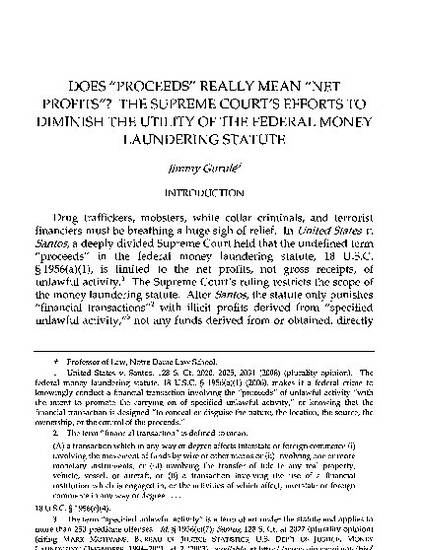
The Supreme Court’s decision in United States v. Santos is severely hampers the fight against drug traffickers, terrorists, mobsters and white collar criminals. It restricts the scope of the money laundering statute, defining the term “proceeds” in it as net profits, not gross receipts from unlawful activity. This imposes an unreasonable and unwarranted burden on prosecutors to prove net criminal profits, money acquired beyond the defendant’s overhead expenses from unlawful activities. The court’s holding also restricts other provisions of the money laundering statute, such as the concealment theory of money laundering, and it creates confusion over whether the Court’s restrictive construction of the term “proceeds” applies to federal criminal and civil forfeiture laws. Lastly, Santos limits the application of the federal money laundering statute to acts that generate illicit profits. This decriminalizes financial transactions with funds obtained from a legitimate source but conducted with the intent to promote terrorism or conceal or disguise funds intended to finance terrorist activities. Congress must take immediate action to amend the money laundering statute in response to this ruling.
Available at: http://works.bepress.com/jimmy_gurule/5/

Reprinted with permission of Ave Maria Law Review.